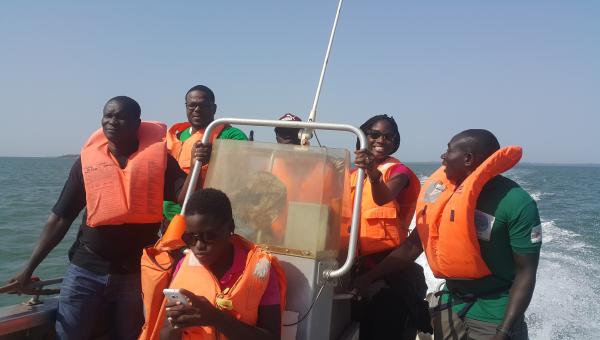Our Focus
Health System Strengthening and Malaria Prevention
Integrated solutions for good health and well-being
We work closely with the Ministry of Health and partners, to manage the Global Fund grant to support the implementation of the National Strategic Plan against Malaria (PEN: Plano Estratégico Nacional de Luta contra o Paludismo 2023-2027). The Global Fund grant funds malaria prevention, diagnostic and treatments of malaria and health system strengthening activities.
In Guinea Bissau, UNDP is the current Principal Recipient for the Global Fund Malaria grant and supports the implementation of malaria prevention activities.
Preventive treatment for pregnant women
Usually referred to as “IPTp” (intermittent preventive treatment in pregnancy – TPI in Portuguese).
Malaria infection during pregnancy can have adverse effects on both mother and fetus, including maternal anemia, fetal loss, premature delivery, low birth-weight.
In high malaria transmission areas, such as Guinea Bissau, women are more likely to have asymptomatic malaria infection, which will be undiagnosed and untreated.
To reduce malaria burden in pregnancies, pregnant women should receive at least three doses of sulfadoxine-pyrimethamine (SP) during pregnancies. In Guinea-Bissau, is given only during antenatal consultations (ANC) in health facilities. Other countries explored additional delivery methods, such as though community health workers for example.
Preventive treatments for children <5 during the rainy season
Usually referred to as “SMC” (seasonal malaria chemoprevention – QPS in Portuguese).
SMC is designed to protect children by clearing existing infections and preventing malaria infections during the season of greatest risk (the rainy season). This is achieved through the monthly administration of antimalarial medicines, usually sulfadoxine-pyrimethamine plus amodiaquine (SP+AQ), for as long as the rainy season lasts.
In Guinea-Bissau, SMC is organized in four regions (Gabu, Bafata, Tombali and Boloma) for four months, between August and November. Each month, there is a “round” of SP+AQ distribution for one week.
In the four regions, during each “round”, all children <5 will receive three doses (one each day for 3 consecutive days) of medicines by the community health worker.
Malaria case management
With the Global Fund grant, UNDP funds 100% of diagnostic and treatment of Malaria in Guinea Bissau.
Diagnostic is done through Rapid Diagnostic Test or microscopy. It is free of charge and done in hospitals, health facilities and by community health workers.
Treatment is free of charge and is also provided in hospitals, health facilities and by community health workers.
Our team works with the Ministry of Health team to quantify the commodities needs.
Health System strengthening
With the support of the Global Fund grants, UNDP also supports activities to strengthen health systems
SUPPLY CHAIN SYSTEM: one of the key activities is the construction of the central warehouse in Bissau. Construction started 5 years ago and will be completed by end of 2023 . The warehouse will be managed by CECOME (Central de Compra de Medicamentos). The grant also funds the LMIS (Logistic management information system).
DATA COLLECTION and DATA USE: Working with INASA, UNDP supports the collection of data from health facilities and community health workers. Data is collected via tablets in DHIS2, the national Health Management Information System (“District Health Information System, developed by the University of Oslo and used in over 80 countries).
COMMUNITY HEALTH: Community health workers (CHW) play an important role in the health sector. There are about 3,500 CHWs in Guinea Bissau. They are supervised by 137 SOTs (Supervisor Operational de Terreno). Community health is funded mainly by the World Bank and the European Union. WE support the malaria elements: equipment, malaria commodities, trainings, and supervision for CHW and SOTs.
New Pharmaceutical Warehouse Completed
The country's first smart facility, the new medical warehouse in Bissau, was completed in May 2024. With an area of 1800 m2 and a storage capacity of 1800 pallets, the new medical warehouse will ensure the storage and distribution of life-saving medicines, equipment, and other health products according to WHO best practices.
100% of malaria services are free of charge
Malaria prevalence halved between 2020 and 2023
420,000 malaria tests provided
110,000 malaria treatments administered
1.4 million mosquito nets distributed
Data from 2023

 Locations
Locations
